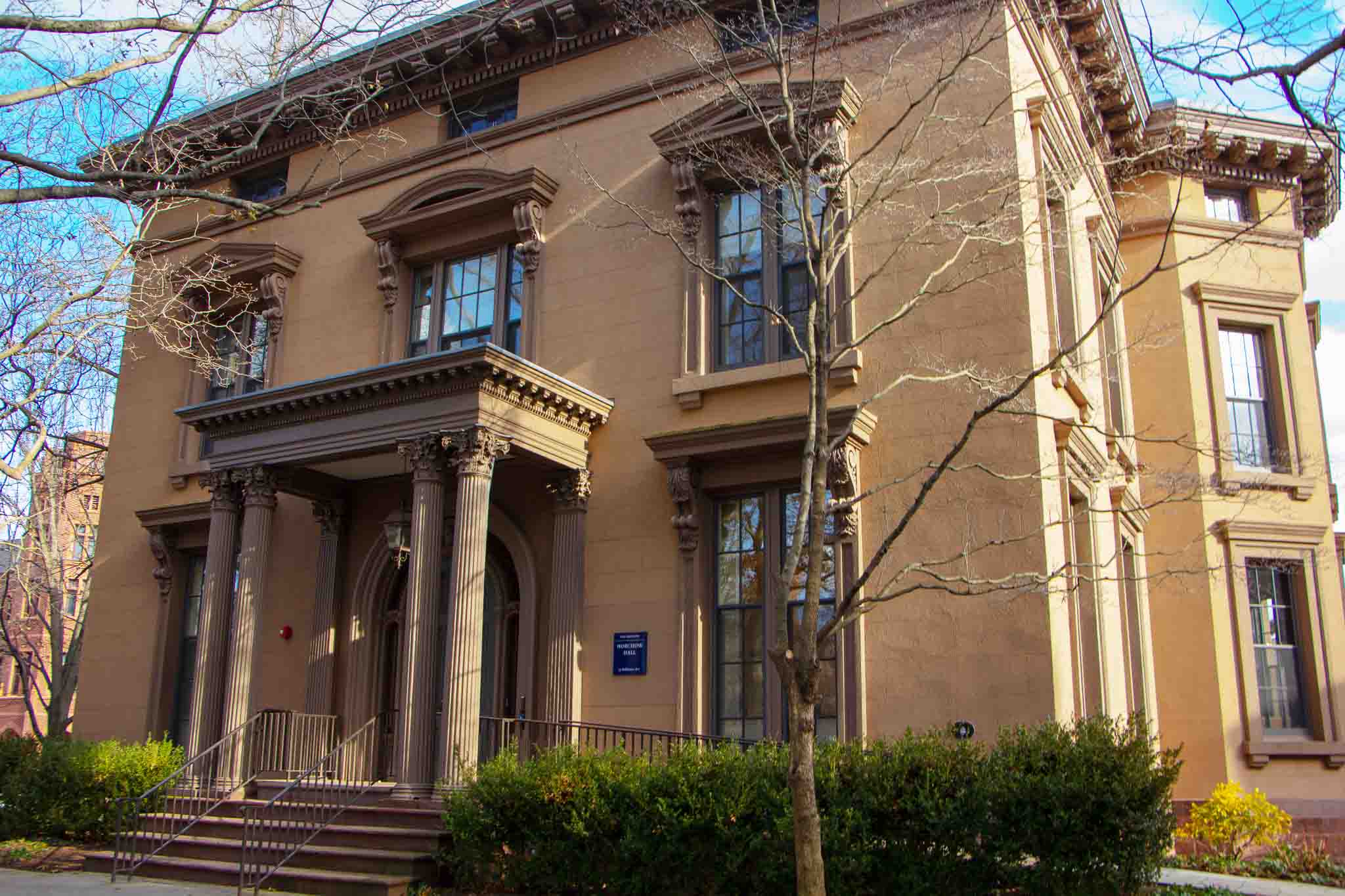
Logan Howard
After years of deliberations and reviews across the University, the Yale Corporation may formally approve long-awaited plans for a degree-offering school in global affairs this weekend.
In November, the Provost’s Advisory Committee on the Future of the Jackson Institute led by economics professor Judy Chevalier ’89 published a report recommending the creation of “an intentionally small school [of Global Affairs], with a focused mission and close interaction among faculty, fellows, and students.” If formed, the school will grow out of the Jackson Institute for Global Affairs, established in 2009 with a $50 million donation under the condition that Yale reconsider whether to transform it into a school 10 years later. Though not yet formally approved, the University’s quiet decision to open the school has been an open secret for months among senior administrators. While the Corporation discussed the report at a February meeting, trustees did not vote on the committee’s recommendation.
In an interview with the News last November, University Provost Benjamin Polak said that Yale will decide whether it will create a school of global affairs by the end of the academic year. According to three administrators familiar with the deliberations, the Corporation is expected to approve the committee’s recommendation this weekend.
University President Peter Salovey declined to comment for the story and said that he does not comment on the Corporation’s agenda prior to the meeting.
In an email to the News prior to the February Corporation meeting, Salovey said the Corporation would likely deliberate for longer than one weekend before voting on the school.
According to Lewis, the Advisory Board for the Jackson Institute — which, according to Vice President for Development Joan O’Neill, is comprised of individuals “willing to provide both strategic advice to the director and financial support to the Institute” — will convene this Thursday.
In an email to the News, Director of the Jackson Institute Jim Levinsohn said the advisory board has been “hugely supportive as [the University] built and continue[s] to build” the Jackson Institute. He did not respond to questions on what the board is scheduled to discuss this week.
The Corporation’s discussion on the potential school of global affairs also follows a meeting of the President’s Council on International Activities this past weekend. According to Lewis, the council is comprised of alumni of the University and others who advise Yale on international strategy. While the Council received updates on Yale-NUS College and Yale Center Beijing, the group did not discuss whether the University should create a school of global affairs “in detail,” Lewis said.
Over the past months, University administrators strongly supported the plan in meetings with Salovey. In an interview with the News in November, University Provost Ben Polak said the new school would be “a statement about Yale’s place in this world” during “a moment in America where we are looking inward, and nationalist thought is spreading.” In December, all but two professional school deans signed a letter to Salovey and Polak expressing support for the provost committee’s recommendation to create a school of global affairs.
In an email to the News shortly before the Feburary Corporation meeting, trustee Lei Zhang GRD ’02 SOM ’02 said that the Jackson Institute has been “an excellent resource” for the University.
“The shift to a school of global affairs gives it a number of tools, including greater access to leading faculty, to help it achieve its goal of being the preeminent global center for research and teaching,” Zhang said. “The emphasis on a smaller program underscores our commitment to nurturing world-class academic thinking. We are focused on ensuring that Yale is a leading resource for discussions about global challenges for the next 50 years and beyond.”
In January, the University held a series of town halls for faculty members to discuss the Chevalier report. But in interviews with the News, several administrators, faculty members and students said the feedback following the release of the report was solicited in haste. In February, three members of the University cabinet told the News that the group did not discuss whether the University should create a new professional school and, if so, which school would maximize Yale’s educational and social impact. Six faculty members who attended the Faculty of Arts and Sciences Senate meeting or the town halls said that the meetings designed to discuss the Chevalier committee’s recommendations barely included conversations about whether the school of global affairs should exist. While the University planned to host a town hall in November to gather student feedback, the meeting was cancelled because it did not seem to accommodate many students’ schedules.
The Jackson Institute was first founded in 2010 after the University secured a $50 million gift from Susan and John Jackson ’67.
Serena Cho | serena.cho@yale.edu







